
Table of Contents
ToggleIntroduction to Digestive Health
Digestive health refers to the proper functioning of the gastrointestinal (GI) system, which ensures that food is broken down into nutrients, absorbed, and eliminated. It includes the mouth, esophagus, stomach, intestines, and auxiliary organs such as the liver, pancreas, and gallbladder. Diet, hydration, exercise, and lifestyle choices all have a huge impact on gut health, which is essential for overall health.
Proper digestive function helps the immune system by keeping a healthy gut microbiome, which defends against pathogens and controls inflammation. Furthermore, good digestion affects mental health through the gut-brain axis, which influences mood and cognitive performance. Overall, maintaining a healthy digestive tract is critical for achieving peak physical and mental health.
So, in this post, we will look at the importance of digestion, the function of dietary intake in digestion, and foods that aid digestion.
Understanding Digestion
The basic process of digestion begins in the mouth, where food is chewed and combined with saliva to begin its breakdown. It then travels through the esophagus to the stomach, where stomach acids and enzymes further degrade it into a semi-liquid known as chyme.This chyme enters the small intestine, where most nutrients are absorbed with the help of pancreatic enzymes and bile from the liver. The remaining undigested material passes into the large intestine, where water is absorbed and waste is eventually eliminated. Digestion is necessary because it allows the body to convert food into nutrients required for energy, development, and cell repair, thus promoting general health and function.
Proper digestion ensures that vitamins, minerals, proteins, fats, and carbs are used efficiently, benefiting overall health, immunity, and metabolic functions. Without proper digestion, the body cannot receive the nutrients it requires to maintain key activities, resulting in malnutrition, decreased immunity, and a variety of health problems. Thus, digestion is essential for maintaining life and promoting well-being.
The Role of Diet in Digestion
Different foods have significant effects on digestion, both positively and negatively. High-fiber meals such as fruits, vegetables, whole grains, and legumes promote good digestion by bulking up stool and supporting regular bowel movements, lowering the risk of constipation.
Fermented foods, such as yogurt, kefir, and sauerkraut, include probiotics that help maintain a healthy gut microbiome and improve digestive health.Drinking enough water keeps you hydrated, which promotes digestion by breaking down food and preventing constipation.
Avocados, almonds, and olive oil include healthy fats, which aid in the absorption of fat-soluble vitamins and promote gut health. A well-balanced diet also includes lean proteins, which are necessary for tissue repair and growth in the digestive tract.
In contrast, processed foods high in refined sugars and harmful fats can disrupt digestion, resulting in bloating, acid reflux, and constipation. Foods heavy in fat can inhibit digestion, resulting in discomfort and indigestion, whereas spicy foods can irritate the digestive tract and induce heartburn or acid reflux in some individuals. Drinking enough water keeps you hydrated, which promotes digestion by breaking down food and preventing constipation.
Here are Some Foods that Improve Digestion
1. High-Fiber Foods
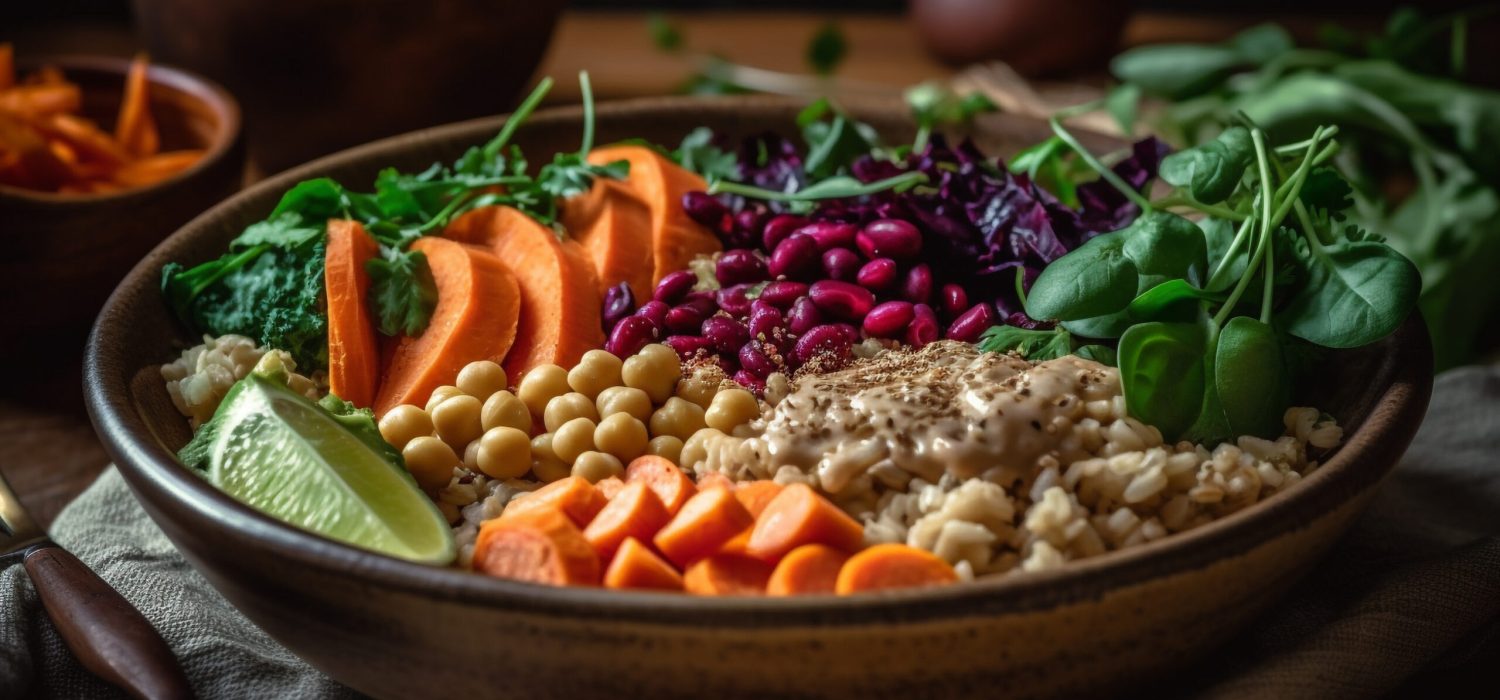
Fiber helps digestion by bulking up the stool, promoting regular bowel movements and preventing constipation. There are two types of fiber: soluble and insoluble. Soluble fiber, found in foods such as oats, beans, and apples, absorbs water and produces a gel-like substance that slows down digestion while also aiding in nutrient absorption and blood sugar regulation.
Insoluble fiber, present in foods such as whole grains, nuts, and vegetables, does not dissolve in water and aids in the movement of material through the digestive tract, improving regularity and reducing digestive problems such as diverticulitis. Both types of fiber promote a healthy gut microbiome by nourishing beneficial bacteria, which aids digestion and general gut health.
Here are some high-fiber foods classified as fruits, vegetables, whole grains, and legumes:
Fruits – Apples,Pears,Berries (raspberries,
strawberries),Oranges,Bananas,Kiwis,Avocados,etc.
Vegetables – Broccoli,Carrots,Brussels sprouts,Spinach,Kale,Sweet potatoes,Artichokes,etc.
Whole Grains – Oats,Quinoa,Brown rice,Barley,Whole wheat bread,Whole grain pasta,Bulgur,etc.
Legumes – Lentils,Chickpeas,Black beans,Kidney beans,Pinto beans,
Edamame,etc.
2.Probiotic-Rich Foods
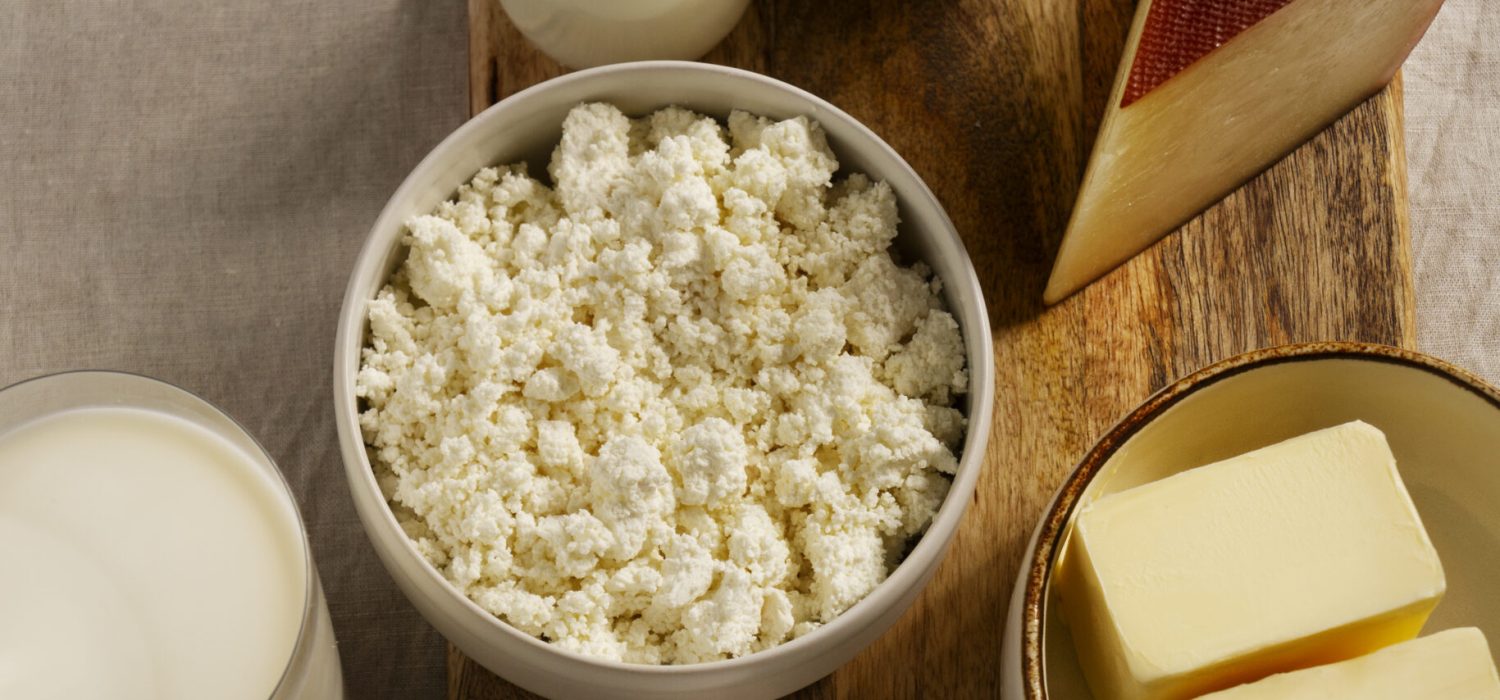
Probiotics promote gut health by preserving and restoring the natural balance of the gut microbiome, which is a colony of bacteria living in the digestive system. They introduce healthy bacteria that can compete with bad bacteria, lowering the risk of infection and inflammation. They help improve intestinal barrier function, preventing potentially dangerous chemicals from entering the bloodstream.
Probiotics also help to regulate the immune system, which improves the body’s resistance against pathogens. Regular probiotic intake, whether through supplements or fermented foods such as yogurt, kefir, sauerkraut, and kimchi, can help alleviate digestive disorders such as irritable bowel syndrome (IBS), inflammatory bowel disease (IBD), and antibiotic-associated diarrhea, thereby improving overall gut health and well-being.
Here are some probiotic-rich foods:
Yogurt (with live and active cultures),Kefir,Sauerkraut (unpasteurized),Kimchi,Miso,Tempeh,Kombucha,Pickles (fermented in brine, not vinegar),Natto,Fermented cheeses (like Gouda, mozzarella, and cheddar),
3.Prebiotic Foods

Prebiotics help to maintain a healthy gut microbiome by feeding beneficial microorganisms. They are non-digestible fibers found in some foods that pass through the upper gastrointestinal system and into the colon, where they are fermented by the gut bacteria. This fermentation process promotes the growth and activity of good bacteria, such as Bifidobacteria and Lactobacilli, which contribute to a balanced and healthy gut environment.
Prebiotics improve gut health by aiding digestion, strengthening the immune system, and promoting the production of short-chain fatty acids (SCFAs) such as butyrate, acetate, and propionate. SCFAs are vital for colon health because they supply energy to colon cells, lower inflammation, and reinforce the gut barrier, which keeps hazardous chemicals out of the circulation.
Some examples of prebiotic-rich foods include:
Garlic, onions, leeks, Asparagus, bananas, Chicory root, Jerusalem artichokes, Dandelion greens, Whole grains (such as oats and barley), Legumes (include lentils and beans).
4.Hydration

Water is essential for digestion because it performs several important roles in keeping the digestive system running smoothly. To begin, water aids in the digestion of meals, allowing the body to absorb nutrients more easily. Saliva, which is mostly water, begins the digestive process by moistening and assisting in the breakdown of food. As food passes through the digestive tract, water is required to dissolve soluble fiber and form a smooth, gel-like substance that facilitates digestion and nutrient absorption in the intestines.
Water also aids in the production of digestive juices and enzymes, which are necessary for the breakdown of food into nutritious components. Water helps the stomach produce gastric juices, which contain hydrochloric acid and digestive enzymes that further degrade food. Water also helps avoid constipation by softening stool and encouraging regular bowel movements. It ensures that the colon absorbs enough water to make easy-to-pass stool.
Furthermore, water aids in the general transportation of food and waste through the digestive tract, reducing digestive discomfort and promoting a healthy gut environment.
Staying hydrated is essential for general health, including digestion. Here are a few methods to remain hydrated all day:
Drink Water Regularly: Drink at least 8 glasses of water per day. Carry a water bottle with you to encourage frequent sips.
Herbal teas: Teas such as chamomile, peppermint, and rooibos, are both hydrating and beneficial to one’s health.
Infused Water: Add slices of fruits, vegetables, or herbs (such as lemon, cucumber, mint, or berries) to your water for a refreshing change.
Water-Rich Foods: Add water-rich foods to your diet, like:
Cucumbers,Watermelon,Strawberries,Cantaloupe, Lettuce,Zucchini,Celery,Tomatoes,Bell Peppers,Grapefruit,etc.
Soups and Broths: Clear soups and broths are hydrating and nutrient-dense.
Smoothies: Make fruit and vegetable smoothies that are both hydrating and high in nutrients
Coconut Water: Coconut water is a natural and refreshing electrolyte-rich beverage.
Limit dehydrating beverages: Reduce your intake of caffeinated and alcoholic beverages, as both can cause dehydration.
5.Ginger and Peppermint
Ginger – Ginger can ease the digestive tract by increasing saliva, bile, and gastric juice production, which improves digestion. It includes active chemicals with anti-inflammatory and antioxidant characteristics, including gingerol and shogaol, which assist to reduce intestinal inflammation and improve smooth digestion. Ginger also relaxes the gastrointestinal muscles, which relieves symptoms like nausea, bloating, and gas. Ginger also accelerates stomach emptying, which can relieve indigestion pain and reduce digestive pressure buildup. Consuming ginger in the form of tea, fresh slices, or pills can effectively support and soothe the
Peppermint – Peppermint can calm the digestive system by relaxing the smooth muscles of the gastrointestinal tract, reducing symptoms like bloating, gas, and stomach pain. The menthol in peppermint calms the stomach and increases the flow of bile, which assists digestion and food transportation through the digestive tract. This makes peppermint very beneficial in treating irritable bowel syndrome (IBS). Additionally, peppermint possesses antispasmodic effects, which reduce muscular spasms in the gut and relieve digestive discomfort. In order to experience these digestive benefits, people often drink peppermint tea or take enteric-coated peppermint oil capsules.
Incorporating ginger and peppermint into your diet can be both easy and fun. Here are some practical methods to incorporate these digestive aids.
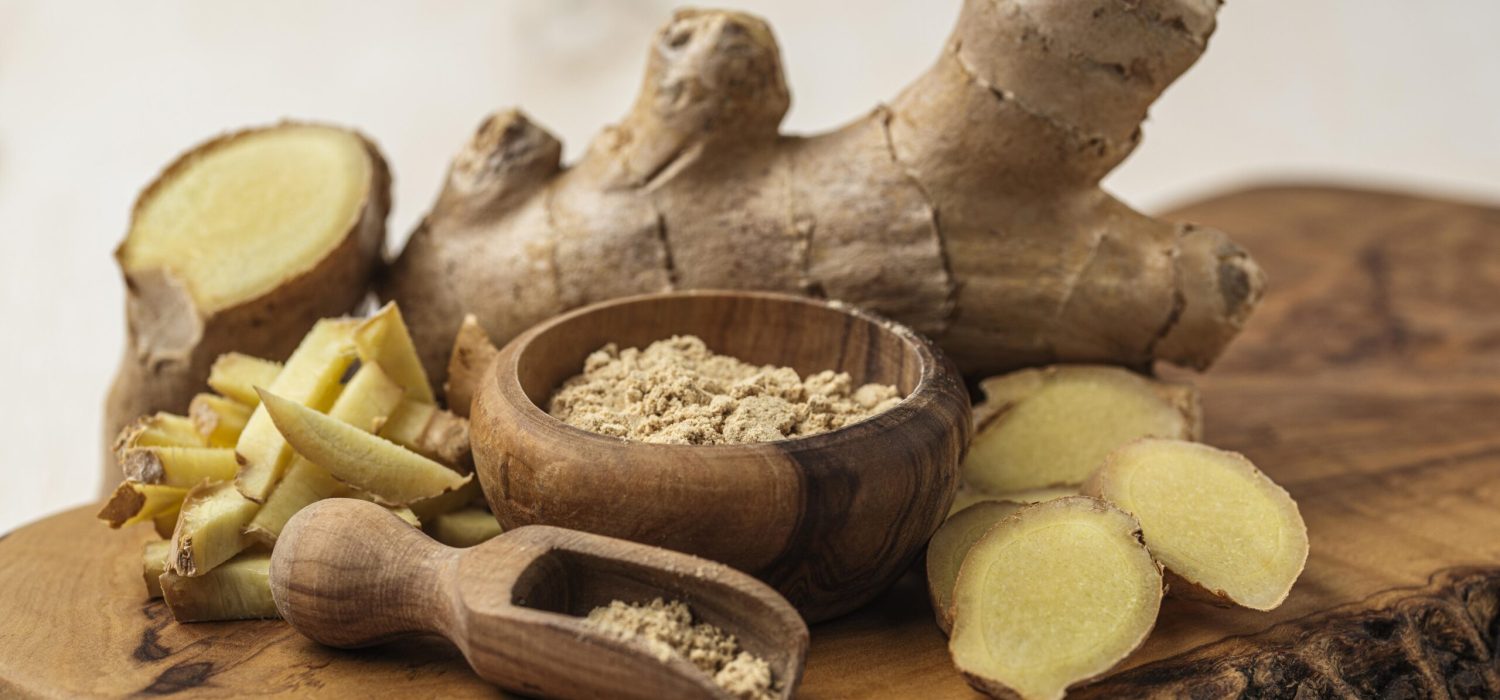
Ginger:
Ginger Tea: Brew fresh ginger slices in hot water to make a calming tea. For added flavor and health advantages, mix in honey and lemon.
Smoothies: Add a tiny piece of fresh ginger to any fruit or vegetable smoothie for a spicy kick and digestive aid.
Cooking: Add fresh or ground ginger into stir-fries, soups, marinades, and baked products such as gingerbread or cookies.
Juices: Use fresh ginger in your homemade vegetable or fruit juices.
Salad Dressings: For a tangy, healthy accent, grate fresh ginger into your salad dressing.
Supplements: Take ginger supplements or capsules, especially if you’re seeking for a concentrated dose.
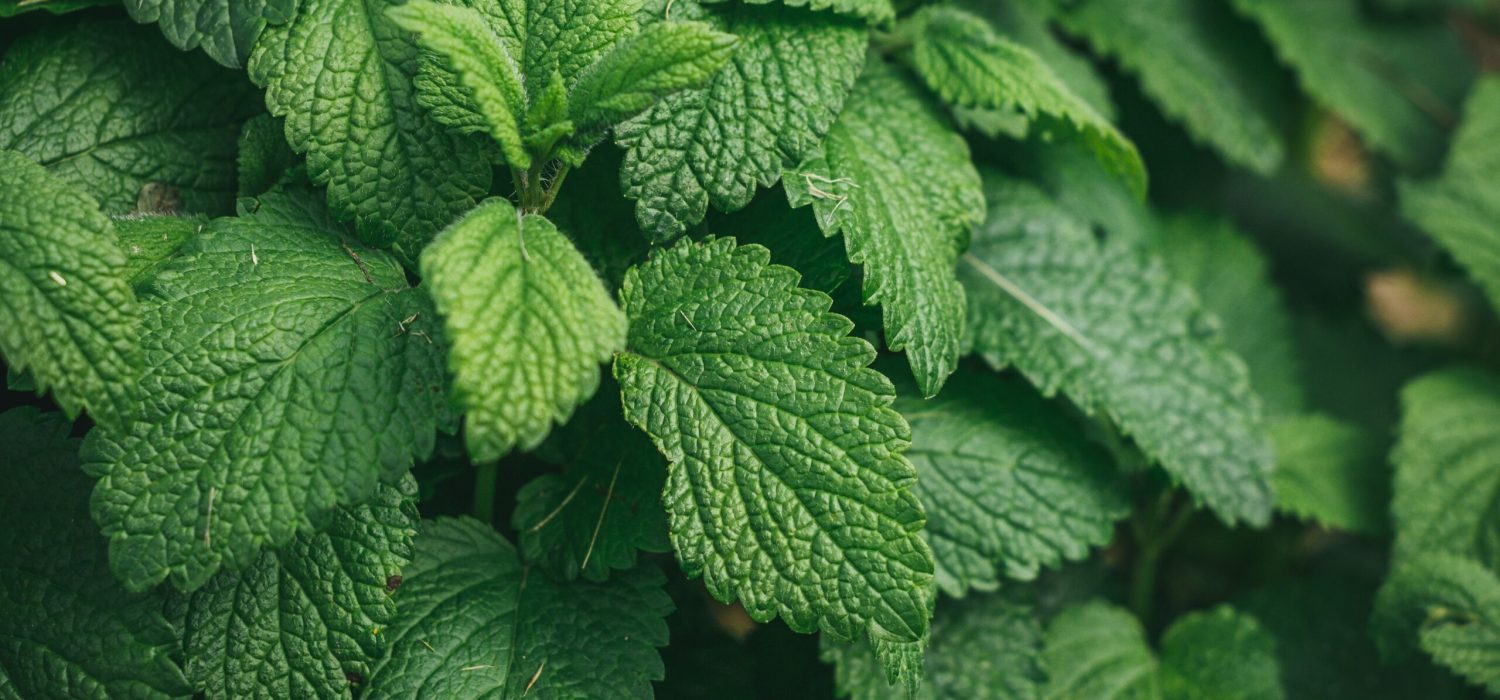
Peppermint:
Peppermint Tea: Brew peppermint leaves in hot water to create a pleasant and calming tea.
Smoothies: To give your smoothies a refreshing touch, add a few fresh peppermint leaves.
Salads: Chop fresh peppermint leaves and sprinkle them on salads for flavor and digestive benefits.
Cooking: Add peppermint leaves to sauces, marinades, and desserts such as mint chocolate or fruit salad.
Infused Water: For a refreshing, minty beverage, mix fresh peppermint leaves into water or lemonade.
Peppermint Oil: If you want a digestive health supplement, take enteric-coated peppermint oil capsules.
6. Fermented Foods
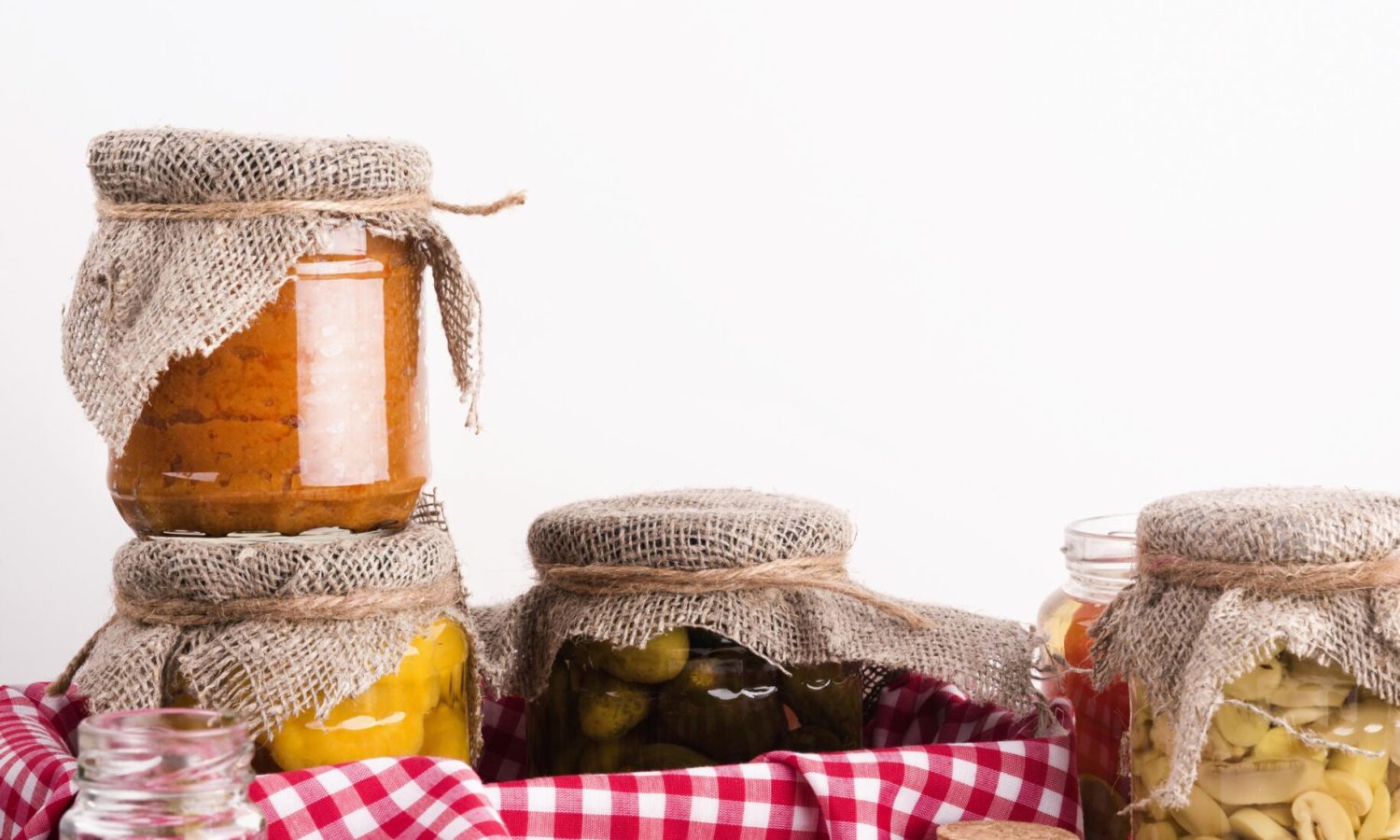
Fermented foods improve digestion by delivering good bacteria, or probiotics, into the stomach, so promoting a balanced and healthy microbiome. These probiotics help break down food, improve nutritional absorption, and boost the immune system. Fermented foods release enzymes and short-chain fatty acids during the fermentation process, which help digestion and reduce inflammation. Regular use of fermented foods can help with digestive difficulties like bloating, constipation, and irritable bowel syndrome (IBS), supporting overall gut health.
List of Fermented Foods
Pickles (fermented in brine, not vinegar),Kombucha,Tempeh,Sauerkraut,Kimchi,Miso,Yogurt (with live and active cultures),Kefir,Natto,Fermented cheeses (like Gouda, mozzarella, and cheddar),Sourdough bread,etc.
Additional Tips for Improving Digestion
Mindful eating, chewing deeply, and eating at regular intervals are all important activities for good digestive health and overall well-being. Mindful eating involves giving complete attention to the eating experience, which allows you to notice hunger and fullness cues, prevents overeating, and increases your enjoyment of food. Chewing properly breaks down food into smaller, more digestible bits, allowing digestive enzymes to work more efficiently and increasing nutritional absorption. It also increases saliva production, which begins the digestion process. Eating at regular intervals keeps energy levels consistent, prevents excessive hunger, which can lead to overeating, and helps in blood sugar control. Together, these activities enhance effective digestion, lower the risk of gastrointestinal pain, and promote a positive relationship with food.
Exercise promotes healthy digestion by activating the normal contractions of the intestinal muscles, allowing food to flow more efficiently through the digestive tract and preventing constipation. Regular physical activity boosts blood flow to the digestive organs, which improves their function and aids in the overall digestion process. Exercise also helps to maintain a healthy weight, which lowers the risk of digestive problems including acid reflux and gastroesophageal reflux disease. Exercise can also help to reduce anxiety and stress, both of which have been linked to poor digestive health. Regular physical activity helps improve gut health, metabolism, and general well-being.
Conclusion
In conclusion, maintaining optimal gut health requires a varied approach. A diet high in fiber, prebiotics, and probiotics promotes gut health and efficient digestion. Staying hydrated with water, herbal teas, and water-rich foods promotes easy digestion. Ginger and peppermint can help relax the digestive system, while fermented foods introduce helpful bacteria that improve gut health. Mindful eating, careful chewing, and eating at regular intervals all aid in digestion and nutrient absorption. Regular exercise increases bowel movement, reduces stress, and improves overall digestive health. Together, these habits promote a healthy digestive tract and overall well-being.
FAQS
Probiotics are live good bacteria present in specific meals and supplements, whereas prebiotics are nondigestible fibers that nourish these beneficial bacteria. Both are essential for a healthy gut microbiome.
Yes, certain foods may hinder digestion. These include highly processed foods, foods heavy in sugar or artificial sweeteners, high-fat foods, and, in some cases, dairy products. These can result in bloating, constipation, and indigestion.
The time it takes for dietary modifications to improve digestion varies depending on the individual. Some people may experience benefits in a matter of days, while others may need a few weeks. Consistency is vital, therefore maintaining a good diet and lifestyle is critical for long-term digestive health.
Yes, stress has a major effect on digestion. It may hinder digestion, increase stomach acid production, and cause symptoms such as stomach cramps, bloating, and indigestion. Meditation, yoga, and deep breathing techniques can all help you manage stress and enhance your digestive health.
Ginger can boost digestive fluids and enzymes, speeding up the digestion process. It also contains anti-inflammatory qualities that can help soothe the digestive system. Peppermint can relax the muscles of the gastrointestinal tract, reducing symptoms such as gas and bloating.
I recommend you to try these tips and foods and see how they make you feel. Pay attention to any changes in your digestion, energy levels, or overall health. Share your experiences adopting these strategies into your diet and lifestyle; your feedback can inspire and motivate others to improve their digestive health.STAY HAPPY AND HEALTHY!